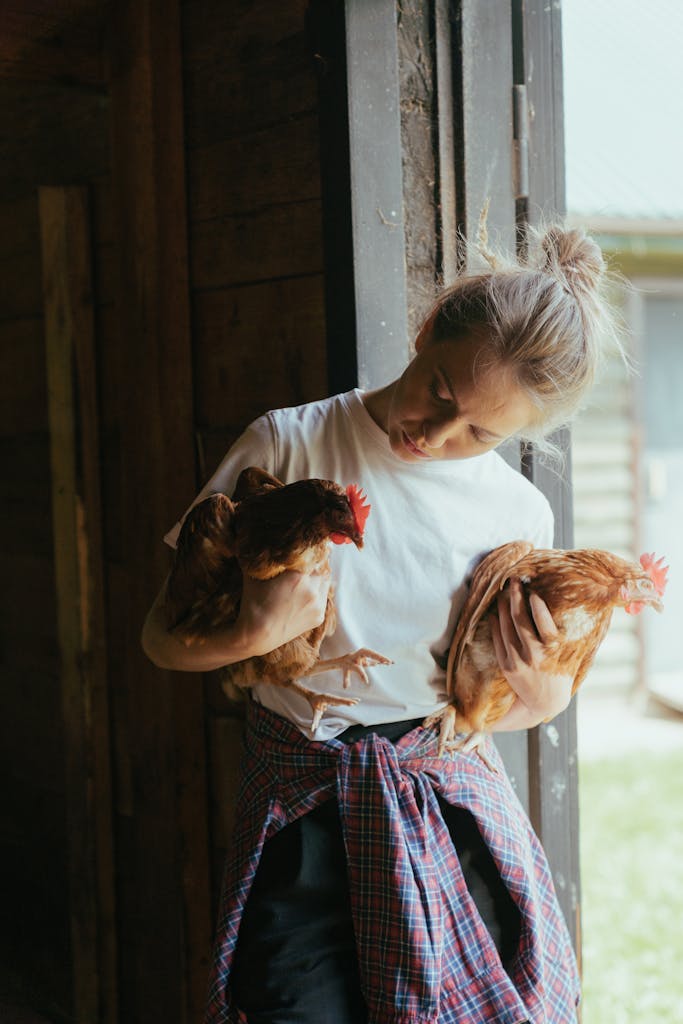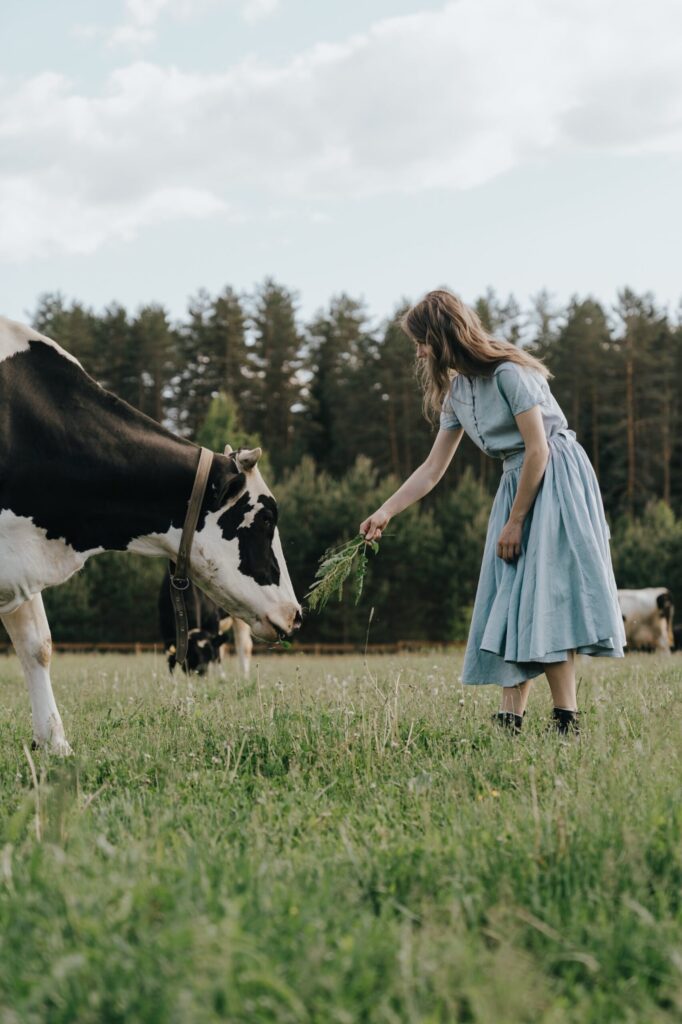The Ultimate List of Helpful Homesteading Skills

For many of us, after we’ve become witches and become deeply connected to Nature on a spiritual level, we find ourselves turning back to the roots of simple living, self-sufficiency, and eco-friendly ways of living. But for some of us–who may or may not be a little more obsessed than others–that sometimes progresses to tackling the idea of full-on homesteading. This ultimate list of helpful homesteading skills is a comprehensive summary of the types of skills homesteading would entail.
Now I confess, I do not yet own chickens, but since that isn’t a requirement to call yourself a homesteader, and I already do many of the things on this list, I actually do refer to myself as a one-acre homesteader. But I have a long way to go, and a lot of learning before me. And that’s okay! The idea here is to build on what you have, not be perfect at everything.
So whether you want a full-fledged sustainable lifestyle or just want to give a few aspects of homesteading a try, this list of homesteading skills will highlight some of the tasks you can learn to dramatically improve your self-reliance. You don’t have to learn all of them, but for each that you do learn, you increase your self-sufficiency and staying power in the lifestyle. And with the world as intensely unpredictable as it is, having any of these skills is a plus. Let me know if you think of anything I’ve missed. Here’s what I’ve gathered so far:
1. Gardening and Food Production Skills
- Vegetable Gardening: Grow your own produce by learning about plant seasons, plant rotation, no-till gardening, and companion planting. (I’ll be posting extensively about organic gardening.)
- Seed Saving: Learn to save seeds from heirloom vegetables and re-start them the following year
- Herb Gardening: Cultivate herbs for both culinary and medicinal purposes.
- Fruit Trees: Understand the planting, care, pruning, grafting, and harvesting of orchard trees and crops.
- Greenhouse Operations: Learn to extend your growing season by mastering greenhouse and high tunnel management along with other season-extending techniques.
- Foraging: Learn how to safely forage and wildcraft for food, mushrooms, and herbs.
- Maple Syrup-ing: learn to tap trees and make maple and other types of tree syrups
2. Animal Husbandry Homesteading Skills
- Raising Poultry: Raise chickens, ducks, or quails for eggs (and/or meat) while homesteading. I’m currently working on hubby to get our own chickens for the eggs and for the natural pest control in my gardens, but he’s stubbornly hanging on to a “no-animals” homestead idea, since we are getting older and we enjoy travel.
- Beekeeping: Learn the art of keeping bees for honey production and garden pollination.
- Goat and Sheep Management: For milk, cheese, and wool production.
- Rabbits, Pigs, and Cattle: Research alternative meat sources, learn how to milk and butcher a cow, goat, pig, or sheep. (This is not my thing, but I respect that each of us has to make the decision whether or not to raise animals for meat for ourselves.)
- Learn basic veterinary care: learn how to give injections, how to aid in a difficult birth, etc
3. Skills for Food Preservation on the homestead
- Canning and Bottling: Learn to preserve fruits, jams, vegetables, prepared meals, and meats.
- Dehydrating and Smoking: Learn how to prepare dried or smoked goods naturally.
- Fermentation: Make your own sourdough, yogurt, sauerkraut, tempeh, and pickles.
- Freezing and Root Cellaring: Use natural storage methods for long-term food storage
- Grind Grains: learn how to grow, harvest, thresh, and grind your own grain
4. Skills for Cooking and Baking from Scratch
- Baking Bread and Pastries: Master artisan and sourdough bread making using minimal ingredients.
- Home Cooking: Learn the efficiency of from-scratch cooking rather than processed wholesales.
- Making Dairy Products: Cultivate cheese, yogurt, and butter-making skills.
- Lard or Tallow: Learn how to render lard or tallow
- Cook over Open Fire: learn to cook over open fire or in fireplace or on a wood stove (Or with a solar cooker! I’ll be featuring posts on these items too!)
5. Building, Carpentry, and Machinery Skills on the Homestead
- Basic Carpentry: Learn enough to be able to make DIY repairs and build essential homestead structures.
- Basic Plumbing: Learn to change a faucet, unclog a drain or toilet, change a leaking wax toilet ring etc.
- Fences: Learn how to build and maintain fences
- Basic Rigging: learn to tie a variety of knots for different uses
- Design Skills: Draw up basic blueprints and utilize architecture basics in your builds.
- Masonry Techniques: Learn to construct outdoor ovens and fireplaces for expanding homestead kitchens.
- Basic mechanic skills: learn how to change a tire, change your oil, replace brake pads, jumpstart a battery, etc
- Welding: learn basic metal working and welding skills
- Operate farm machinery: learn to operate a tractor, manual transmissions, and other farm equipment
6. Sustainable Energy and Homestead Resource Management
- Composting: Turn waste into rich soil while naturally minimizing waste.
- Vermiculture: learn to raise worms for enriching your soil
- Solar Power Basics: Understand and utilize solar panel setups for sustainable energy.
- Firewood Storage and Heating: Learn to harvest, cut, and store firewood effectively
- Clothes lines: learn to build and use a clothes line (maybe even hand wash some clothes)
- One Income: Learn to live on one income or how to live fully self-sufficiently
7. Crafting and Artisan Homestead Skills
- Sewing and Quilting: Make and repair clothing; create quilts and home accessories.
- Homemade Soaps and Candles: Craft simple personal care products using natural ingredients
- Fiber Crafts: Spinning, knitting, crochet, needlework
- Weaving: fabric and/or baskets
8. Non-Toxic Homesteading
- Cleaners: Learn to make non-toxic cleaners from inexpensive and safe products
- Skin and Teeth: Learn to make non-toxic, clean personal care products
9. Survival and Wilderness Homesteading Skills
- Herb Identification: Recognize wild edible and medicinal plants.
- Basic First Aid and CPR: Essential for any remote living task with limitations nearby.
- Orienteering and Navigation: Utilize compasses and maps for efficient resource hunting.
- Gun skills: Learn to handle, shoot, clean, and safely store a gun.
- Learn to hunt: research local hunting laws, learn to hunt and fish, if that’s your thing
- Butchering skills: learn how to humanely kill, gut, clean, and butcher an animal/fish
- Build a Fire: Learn how to build a fire without matches or a lighter
10. Water and Waste Management
- Sustainable Septic Systems: Construct eco-friendly systems.
- Rainwater Harvesting: Construct rainwater catchment and filtration systems.
- Purification Methods: Ensure sourcing potable water with simplicity.
11. Community-based Homesteading Skills
- Bartering and Trading: Economic skills that help your personal self-sustainability.
- Teaching and Sharing: Sharing skills in community-based systems fosters greater collaboration.
- Build a homestead community: because “self” sufficiency is nearly impossible. Community sufficiency is far more realistic. And if the poop hits the fan, you’ll be glad to have like-minded friends to band together with for long-term sustainability.

